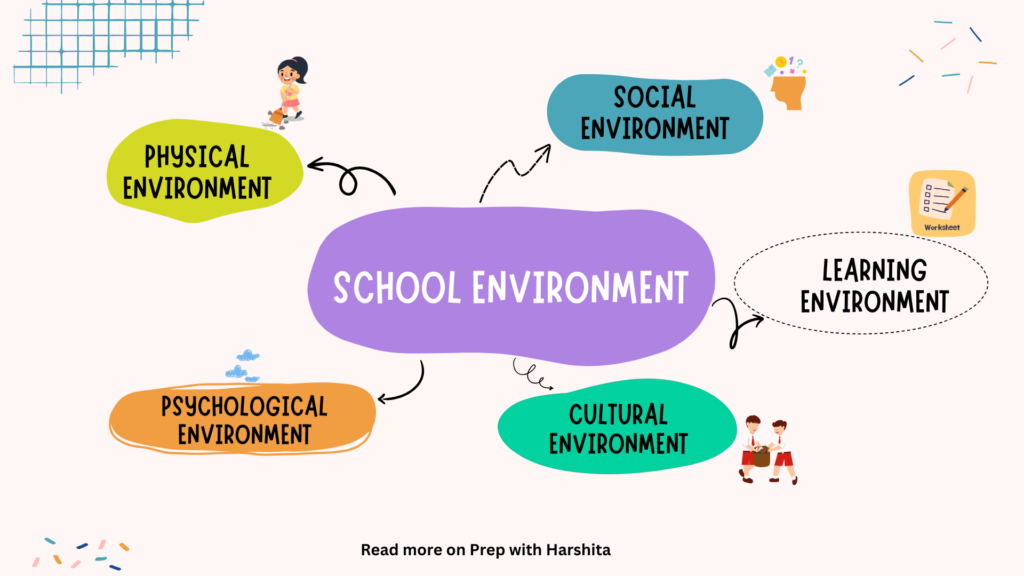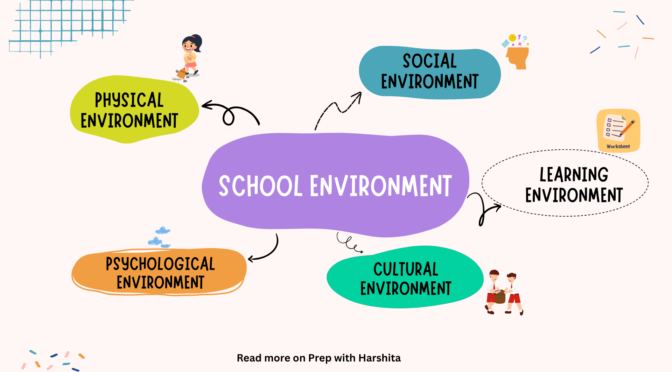Psychological Environment:
- Emotional Climate: The emotional tone of the school environment affects students’ emotional well-being. A supportive and inclusive emotional climate enhances learning.
- Expectations and Standards: Clear expectations for behavior and academic performance contribute to a psychologically healthy environment.
- Inclusivity: A school that values diversity and promotes inclusivity creates a positive psychological environment for all students.
Cultural Environment:
- Cultural Diversity: The presence of students from diverse backgrounds contributes to a rich cultural environment. Schools that celebrate diversity create a more inclusive and tolerant atmosphere.
- Multicultural Education: Intentional efforts to incorporate diverse perspectives, histories, and cultures into the curriculum contribute to the cultural environment.
Learning Environment:
- Teaching Methods: The methods used by educators, including pedagogical approaches, technology integration, and student engagement strategies, contribute to the learning environment.
- Curriculum Design: The design and relevance of the curriculum impact the intellectual atmosphere of the school.
- Educational Resources: The availability of books, technology, and other resources contributes to the overall learning environment.
Also Visit: Prep with Harshita



Great content! Super high-quality! Keep it up! http://www.hairstylesvip.com
Your Ultimate Cannabis Travel Guide
HelpMeHigh is your trusted source for top-shelf recreational and medical cannabis. Explore a curated selection of premium flower, edibles, concentrates, and wellness products backed by expert knowledge and a focus on quality, safety, and care. Whether you’re here to unwind or find relief, we’ve got you covered. With a commitment to quality and transparency, https://helpmehigh.com/ continues to be a trusted companion for those seeking to explore the world of cannabis with confidence.